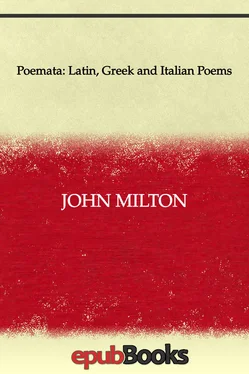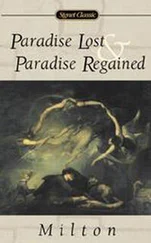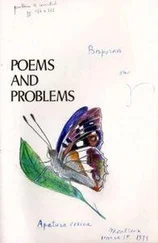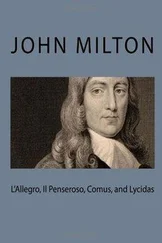Istis illa solet loca luce carentia saepe
Perlustrare, etiam radianti impervia soli.
Millenisque loquax auditaque visaque linguis
Cuilibet effundit temeraria, veraque mendax
Nunc minuit, modo confictis sermonibus auget.
Sed tamen a nostro meruisti carmine laudes
Fama, bonum quo non aliud veracius ullum,
Nobis digna cani, nec te memorasse pigebit
Carmine tam longo, servati scilicet Angli
Officiis vaga diva tuis, tibi reddimus aequa.
Te Deus aeternos motu qui temperat ignes,
Fulmine praemisso alloquitur, terraque tremente:
Fama siles? an te latet impia Papistarum
Conjurata cohors in meque meosque Britannos,
Et nova sceptrigero caedes meditata Jacobo:
Nec plura, illa statim sensit mandata Tonantis,
Et satis ante fugax stridentes induit alas,
Induit & variis exilia corpora plumis;
Dextra tubam gestat Temesaeo ex aere sonoram.
Nec mora jam pennis cedentes remigat auras,
Atque parum est cursu celeres praevertere nubes,
Jam ventos, jam solis equos post terga reliquit:
Et primo Angliacas solito de more per urbes
Ambiguas voces, incertaque murmura spargit,
Mox arguta dolos, & detestabile vulgat
Proditionis opus, nec non facta horrida dictu,
Authoresque addit sceleris, nec garrula caecis
Insidiis loca structa silet; stupuere relatis,
Et pariter juvenes, pariter tremuere puellae,
Effaetique senes pariter, tanteaeque ruinae
Sensus ad aetatem subito penetraverat omnem
Attamen interea populi miserescit ab alto
Aethereus pater, & crudelibus obstitit ausis
Papicolum; capti poenas raptantur ad acres;
At pia thura Deo, & grati solvuntur honores;
Compita laeta focis genialibus omnia fumant;
Turba choros juvenilis agit: Quintoque Novembris
Null Dies toto occurrit celebratior anno.
III
On the Death of the Bishop of Ely [102] Nicholas Felton.
- Anno Aetates 17
My lids with grief were tumid yet,
And still my sullied cheek was wet
With briny dews profusely shed
For venerable Winton dead, [103] Dr. Felton died a few days after Andrewes, Bishop of Winchester. See Milton's Third Elegy.
When Fame, whose tales of saddest sound
Alas! are ever truest found,
The news through all our cities spread
Of yet another mitred head
By ruthless Fate to Death consign'd,
Ely, the honour of his kind.
At once, a storm of passion heav'd
My boiling bosom, much I grieved
But more I raged, at ev'ry breath
Devoting Death himself to death.
With less revenge did Naso [104] Ovid.
teem
When hated Ibis was his theme;
With less, Archilochus, [105] A Greek poet. He was refused by Lycambes as a suitor to his daughters, and in revenge lampooned the entire family. Lycambes's daughters hanged themselves.
denied
The lovely Greek, his promis'd bride.
But lo! while thus I execrate,
Incens'd, the Minister of Fate,
Wondrous accents, soft, yet clear,
Wafted on the gale I hear.
Ah, much deluded! lay aside
Thy threats and anger misapplied.
Art not afraid with sounds like these
T'offend whom thou canst not appease?
Death is not (wherefore dream'st thou thus?)
The son of Night and Erebus,
Nor was of fell Erynnis born [106] Erebus and Erynnis are Furies.
In gulphs, where Chaos rules forlorn,
But sent from God, his presence leaves,
To gather home his ripen'd sheaves,
To call encumber'd souls away
From fleshly bonds to boundless day,
(As when the winged Hours excite,
And summon forth the Morning–light)
And each to convoy to her place
Before th'Eternal Father's face.
But not the wicked–Them, severe
Yet just, from all their pleasures here
He hurries to the realms below,
Terrific realms of penal woe!
Myself no sooner heard his call
Than, scaping through my prison–wall,
I bade adieu to bolts and bars,
And soar'd with angels to the stars,
Like Him of old, to whom 'twas giv'n
To mount, on fiery wheels, to heav'n.
Bootes' wagon, [107] See Milton's Fifth Elegy, line 6, and the note thereto.
slow with cold
Appall'd me not, nor to behold
The sword that vast Orion draws,
Or ev'n the Scorpion's horrid claws. [108] The constellation Scorpio.
Beyond the Sun's bright orb I fly,
And far beneath my feet descry
Night's dread goddess, seen with awe,
Whom her winged dragons draw.
Thus, ever wond'ring at my speed
Augmented still as I proceed,
I pass the Planetary sphere,
The Milky Way—and now appear
Heav'ns crystal battlements, her door
Of massy pearl, and em'rald floor.
But here I cease. For never can
The tongue of once a mortal man
In suitable description trace
The pleasures of that happy place,
Suffice it that those joys divine
Are all, and all for ever, mine.
IV
That Nature is Not Subject to Decay
Ah, how the Human Mind wearies herself
With her own wand'rings, and, involved in gloom
Impenetrable, speculates amiss!
Measuring, in her folly, things divine
By human, laws inscrib'd on adamant
By laws of Man's device, and counsels fix'd
For ever, by the hours, that pass, and die.
How?—shall the face of Nature then be plow'd
Into deep wrinkles, and shall years at last
On the great Parent fix a sterile curse?
Shall even she confess old age, and halt
And, palsy–smitten, shake her starry brows?
Shall foul Antiquity with rust and drought
And famine vex the radiant worlds above?
Shall Time's unsated maw crave and engulf
The very heav'ns that regulate his flight?
And was the Sire of all able to fence
His works, and to uphold the circling worlds,
But through improvident and heedless haste
Let slip th'occasion?—So then—All is lost—
And in some future evil hour, yon arch
Shall crumble and come thund'ring down, the poles
Jar in collision, the Olympian King
Fall with his throne, and Pallas, holding forth
The terrors of her Gorgon shield in vain, [109] Pallas Athena (Minerva) had the head of the Gorgon Medusa in her shield; it turned all who looked upon it into stone.
Shall rush to the abyss, like Vulcan hurl'd
Down into Lemnos through the gate of heav'n.
Thou also, with precipitated wheels
Phoebus! thy own son's fall shalt imitate,
With hideous ruin shalt impress the Deep
Suddenly, and the flood shall reek and hiss
At the extinction of the Lamp of Day.
Then too, shall Haemus cloven to his base
Be shattered, and the huge Ceraunian hills, [110] Phaeton, who fled from the chariot of the Sun while driving it.
Once weapons of Tartarean Dis, immersed
In Erebus, shall fill Himself with fear.
No. The Almighty Father surer lay'd
His deep foundations, and providing well
For the event of all, the scales of Fate
Suspended, in just equipoise, and bade
His universal works from age to age
One tenour hold, perpetual, undisturb'd.
Читать дальше












